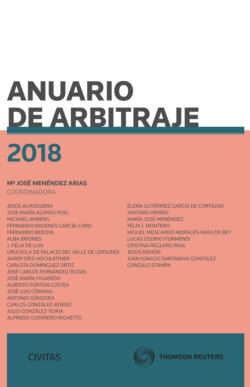Читать книгу Anuario de arbitraje 2018 - Mª José Menéndez Arias - Страница 15
На сайте Литреса книга снята с продажи.
VI. A FEATURE OF AMERICAN LITIGATION THAT SHOULD PERHAPS BE USED MORE IN INTERNATIONAL ARBITRATION
ОглавлениеNow let us briefly consider a feature of US litigation that might, in our opinion, be used to foster more efficient, less costly arbitrations80).
In US litigation, virtually every complaint is first subjected to a motion to dismiss81). If the complaint survives the motion to dismiss, it will inevitably be subjected to a motion for summary judgment before the case proceeds to trial82). Now, we do not suggest that parties in international arbitrations be permitted to routinely engage in this series of repeated challenges, merely that tribunals consider whether it would be just and efficient to dismiss unmeritorious claims or defenses early in the case.
In response to the arbitration community’s concerns about judicialization and Americanization problems and its desire to reduce costs and increase efficiencies, some arbitral institutions have decided that the answer is to give arbitrators more explicit powers under their rules and to then encourage arbitrators to use those powers. Of course, due to the consensual nature of arbitration, even when arbitrators are granted such powers, they may be hesitant to exercise some of the more coercive powers that a court might use regularly83).
In the case of summary disposition of claims or defenses, arbitrators do not lack power in all cases, but they do appear hesitant to exercise that power84). «Absent... express authority, and absent other manifestations of parties’ desire for such procedures (such as language in their arbitration agreement to that effect), arbitrators may feel uncomfortable imposing these procedures on parties and may question whether they have the authority to do so85)». As of 2010, «[w]ith the exception of [ICSID] Rule 41(5), few leading international arbitral institutions’ rules [had] set forth procedures for the summary disposition of a party’s claims86)».
Today, however, there are signs that arbitral institutions are encouraging their arbitrators to consider summary resolution of claims or defenses. For example, several international arbitral institutions have added express rules permitting summary resolution of claims or defenses87). In fact, as this article was being drafted, the ICC updated its Note to Parties and Arbitral Tribunals on the Conduct of the Arbitration under the ICC Rules of Arbitration to provide more detailed guidance on the immediate dismissal of «manifestly unmeritorious claims or defences88)». That said, the largest international arbitration institutions, ICC included, have yet to adopt express rules for handling summary disposition of issues as a routine part of an arbitration89).
Encouraging arbitrators to scrutinize the viability of the parties’ claims and defenses prior to the evidentiary hearing, like the now ubiquitous case-management conference, can serve multiple purposes that may lead to greater efficiency: (1) educating the arbitrator(s) in an in-depth manner, (2) focusing the parties’ attention on the dispositive issues, and (3) saving everyone time and money by jettisoning unmeritorious claims and defenses rather than letting them hang around to be dealt with in a final award90).
